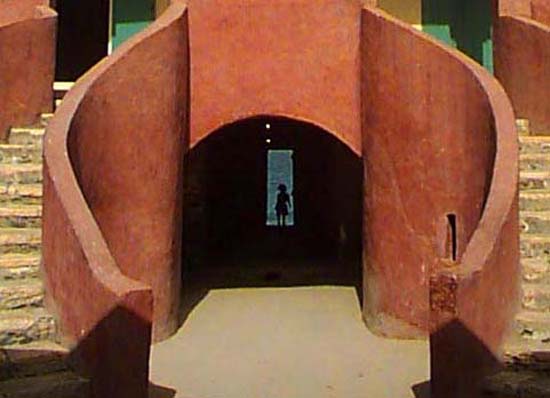
PCV Piper Scott helping the poor of Senegal
Piper Scott helping the poor of Senegal
By Sharon Smigielski
The Western Star
Senegal, West Africa, is a long way from Morrow.
Just how far has been a world of discovery for Little Miami High School graduate Piper Scott.
Now in her second of a two-year assignment in the remote reaches of Senegal, the 24-year-old Peace Corps volunteer is working to improve and teach basic health practices to the 450 or so people with whom she lives in the village of Sahre Hammadi.
It's a task made even more difficult by the lack of medical provisions with which to treat the sick and injured, said Scott in a phone interview last week from the Hamilton Twp. home of her parents, Bruce and Linda, to Tambacounda, Senegal.
Only recently has a physician been assigned to the local health post, which had been without the services of one for several months.
Located in another nearby larger village, the clinic is the only medical facility to care for some 15,000 people of the 41 surrounding villages.
Without a physician, "villagers had no access to the most basics of health care," said Scott.
She told how the emergency treatment of a young boy who had been trampled by a horse fell to the local villagers. To close his wounds, they used what material they had on hand -- stitching fashioned from the plastic strips of a rice bag.
"The villagers are coming in with horrendous burns and wounds," she said. Even worse, there is little or nothing in the way of medical provisions -- band aids, disinfectant, alcohol swabs, latex gloves, masks -- for treating them.
She has seen cotton gauze reused from one patient to the next. The supply of vaccinations with which to dose infants against disease is depleted.
The facility used for the local health post is a decrepit, filthy-looking two-room building. Photos taken by Scott reveal cracked, dirty walls. Window shutters are broken; the door has no locks.
"There's no way to keep the dust and wind out. Anyone can get in at anytime," said Scott, who teaches classes to villagers on nutrition, disease prevention, better sanitation practices and other ways to improve their health.
She would also like to see first aid training provided to the villagers.
Because the doctor travels from village to village to care for those who cannot get to the health post, he is not always immediately available to treat emergency cases, said Scott.
"I think it's important for the villagers to learn basic first aid so they can treat injuries right away and not have to wait on the doctor," she said.
Though she found her initial entry to Senegal to be a challenging one as she adapted to a very different world, "I'm finding it so rewarding," said Scott, who graduated from Duke University with a degree in African and Middle Eastern Studies.
Her service with the Peace Corps has provided her with first-hand look at the history and culture of Africa.
"What better way to get first-hand knowledge on African studies than to go to Africa," she said.
On her arrival, she was overwhelmed when first confronted by the scope of the work that awaited her.
"I didn't think I would make any difference here," she said.
After more than a year's work, however, she believes she has as she works among the villagers.
"I'm believing I'm making some headway," she said of her task to improve basic health and sanitation practices.
She's encouraged by those who seek medical treatment for their youngsters rather than resorting to ancient practices such as branding a child's stomach to cure a case of worms.
Only recently she learned that she had obtained a Peace Corps grant -- for which she had been working since last June -- which will fund the cost of digging latrines for each village family who must resort to using the fields where they grow their crops.
Primarily an agricultural community, the villagers raise millet, corn and peanuts which are harvested in September and October.
Though theirs is an impoverished life, they are friendly and protective of Scott, said her mother, Linda, who hears from her daughter about every six weeks when Piper travels to Tambacounda.
"I'd love to be able to meet her village family. They've taken such good care of her. They're very good to her," added Scott, who misses her only daughter greatly.
"It's been very difficult for me. I admire her. I admire her courage but I miss her so much," she said.
To Donate
Both Piper and Linda Scott are asking for donations of medical supplies to be sent to the Senegal region where Piper works.
Packages should be marked for air mail and addressed to: Piper Scott, Peace Corps volunteer
Corps de la Paix
BP 2534
Dakar, Senegal
West Africa
